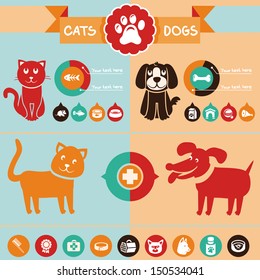Dog Daycare Vs In Home Care
Dog Daycare Vs In Home Care
Blog Article
Can Canine Day Care Cause Illness?
Pets in day care get lots of workout, socializing with other dogs and one-of-a-kind experiences. This can be specifically practical for young puppies and dogs with behavior problems.
There are several lawful factors to consider you require to take into account when starting a doggy daycare company. These consist of the framework of your organization and conformity with government regulations.
1. Canine Distemper
Canine distemper is spread with straight contact with the physical liquids and waste of a contaminated pet, but it can also be transmitted through shared water and food bowls or with air-borne beads. This very transmittable ailment is most dangerous for puppies, but it can impact canines of any type of age and is fatal for many if left without treatment.
Preliminary signs and symptoms of canine distemper usually resemble an acute rhinitis, consisting of dripping eyes and nose with watery or pus-like discharge. As the condition proceeds, a pet will certainly create high temperature, coughing, lowered cravings, throwing up and looseness of the bowels. The infection can additionally strike the nerves, causing seizures, jerking and partial or total paralysis.
Trustworthy childcares lower direct exposure to infection by calling for inoculations, regular health examinations and comply with stringent hygiene protocols. If your pup seems extremely weary or hopping, a day off might assist him recover, but you should avoid taking him back to daycare till these signs and symptoms clear.
2. Kennel Coughing
Kennel coughing, likewise known as infectious canine tracheobronchitis or Bordetella, is a highly transmittable viral or microbial condition that impacts the breathing tract. It's commonly transferred via the exchange of saliva or air beads that an ill canine exhales. Social dogs go to greater danger for infection due to their constant communication with each other, such as when they play, share food or water, sniff one another or merely fulfill in a congested atmosphere like boarder collie dog a canine park or daycare.
One of the most typical sign of kennel cough is a persistent and strong coughing that sounds like something stuck in the throat or retching. Usually, pet dogs will cough up foamy white phlegm. If left unattended, a pet dog can develop pneumonia and go to severe danger for life.
A reputable childcare center ought to have strict cleansing and cleanliness methods, sterilize all toys, food and water bowls consistently, and be open regarding their vaccination plans. Keeping your pet as much as date on their inoculations, specifically for bordetella and canine flu, will significantly reduce their possibilities of acquiring the ailment.
3. Parvovirus
Canine parvovirus, or parvo, is an extremely contagious viral ailment that can be lethal for puppies and young person dogs with inadequate immune systems. It's most generally spread out by direct contact with infected canine feces-- which can take place when canines smell, lick, or taste contaminated feces-- and indirectly from polluted people, things, or atmospheres (like kennels, brushing spaces and lawns). Young puppies and dogs without total vaccination backgrounds are especially prone to parvo.
The virus is exceptionally durable, enduring in the atmosphere for up to nine years, and can conveniently be transferred in between canines by call through feces or on footwear, clothing, and bed linen contaminated with parvovirus. If not dealt with right away with IV liquids, electrolyte balance, throwing up control medicines and anti-biotics to avoid second bacterial infections, a pet will rapidly dry out and develop serious diarrhea, which causes shock and blood poisoning. Parvo is challenging to heal once a pet dog has actually ended up being ill, yet with appropriate veterinary treatment, many young puppies do endure this illness.
4. Dog Flu
Dog flu virus is extremely transmittable and spreads through straight contact, sharing food and water bowls, licking or nuzzling other pets, through air-borne droplets, and with polluted surface areas. Vaccination is effective in lowering the risk of infection and break outs.
The majority of affected pet dogs develop a moderate breathing infection with a coughing that lasts 1-3 weeks. They may also have nasal and eye discharge, sneezing, and sleepiness. Some of the most severe instances result in pneumonia and a high fever.
If your canine displays any one of these symptoms, do not bring them back to daycare up until they are healthy and balanced. If your dog is showing signs of extreme exhaustion or limping, speak with your veterinarian today and ensure they get on healthiness supplements to help build their immunity. A vet will certainly review your dog for symptoms of the flu by taking an example from the nose or throat, and blood examinations can be done to validate.